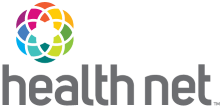News
Californians See Increase in Access to Care from Health Net's Mobile and Virtual Initiatives
Date: 10/13/22
Health Net has been serving Californians for over 40 years. In that time, we've worked to create a whole-person model of care. This model looks at social drivers of health, like safe housing, transportation, bias and more. Looking at these items helps us close equity gaps for people who need it most. Health equity means that everyone has a fair and equal opportunity to be as healthy as possible. This is important because some groups of people have more barriers to good health than others.
Another huge part of the whole-person model is using mobile and virtual services. This includes telehealth, receiving health services through an electronic device, and bringing health care to the community through mobile vehicles. These tactics mean that we can increase the number of Californians who have access to the quality care and services they need and deserve.
Our latest issue brief, Expanding Access to Care: Mobile & Virtual Health (PDF), talks about Health Net's approach to increasing health outcomes and how we work to achieve it. Working with local partners, we have invested in new mobile and virtual solutions to ensure our members can get care, when, how and where they need it. Examples include:
- Awarded $13.4 million to 138 Medi-Cal providers across California: This partnership with the California Department of Managed Health Care helped providers set up or expand (PDF) their digital health practice so they could bring telehealth to underserved patients.
- Provided a $3 million grant to the national leader in school-based telehealth: This grant helped Hazel Health expand to support California children at K-12 schools. It closed equity gaps and advanced education through increased access to medical care and behavioral support.
- Invested over $2.5 million in grants and programs to help the unsheltered (PDF): We funded the Martin Luther King Jr. Community Hospital (MLKCH) Street Medicine program – a partnership between MLKCH and the USC Keck School of Medicine. The Street Medicine program delivers care directly to homeless people in South Los Angeles through specialized care teams.
- Worked with trusted community partners to bring vaccines to members and non-members: Our RVax180 initiative held more than 210 vaccine clinics in 70 cities and 15 counties. In total, the Health Net team provided more than 22,000 vaccines and traveled more than 40,000 miles.
These are just a few of the many ways in which Health Net has been working to increase health equity and improve the lives of Californians. We will continue to use new tools and channels to decrease health disparities.
As we have for decades, Health Net cares about our members, wherever and whomever they are. To learn more, read our latest issue brief (PDF) or check out our Resource Library, which contains many important summaries and analyses.
